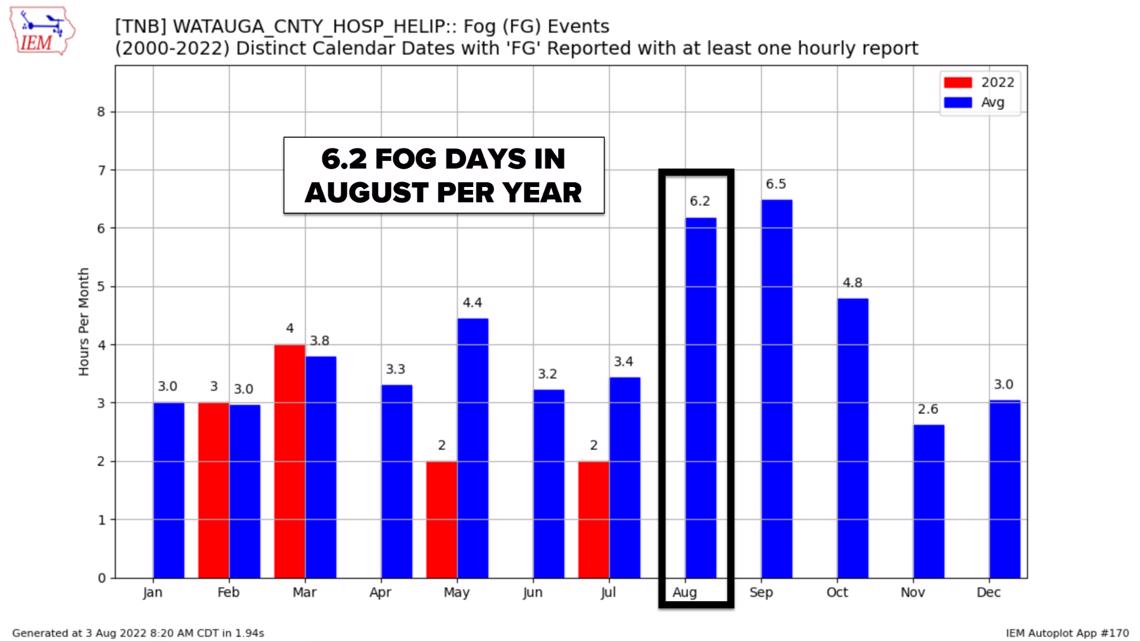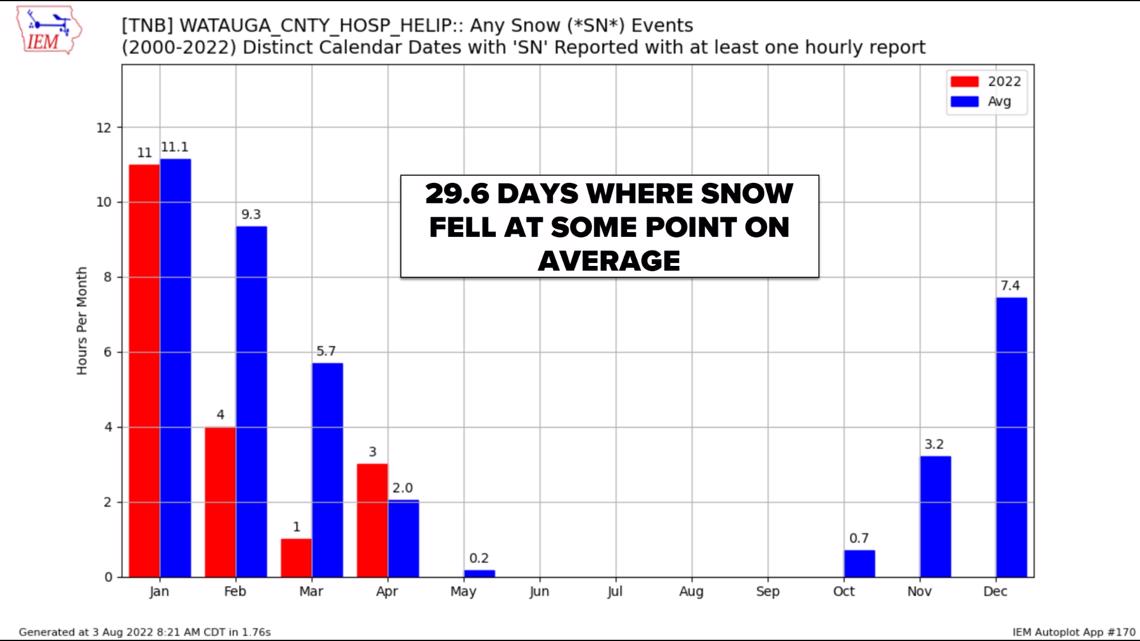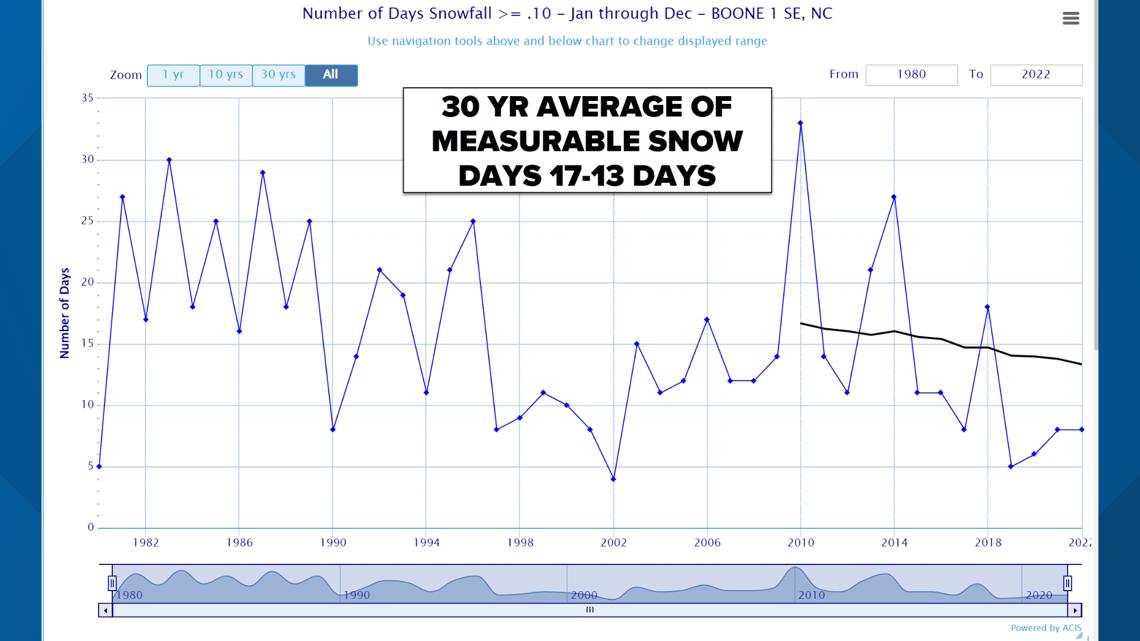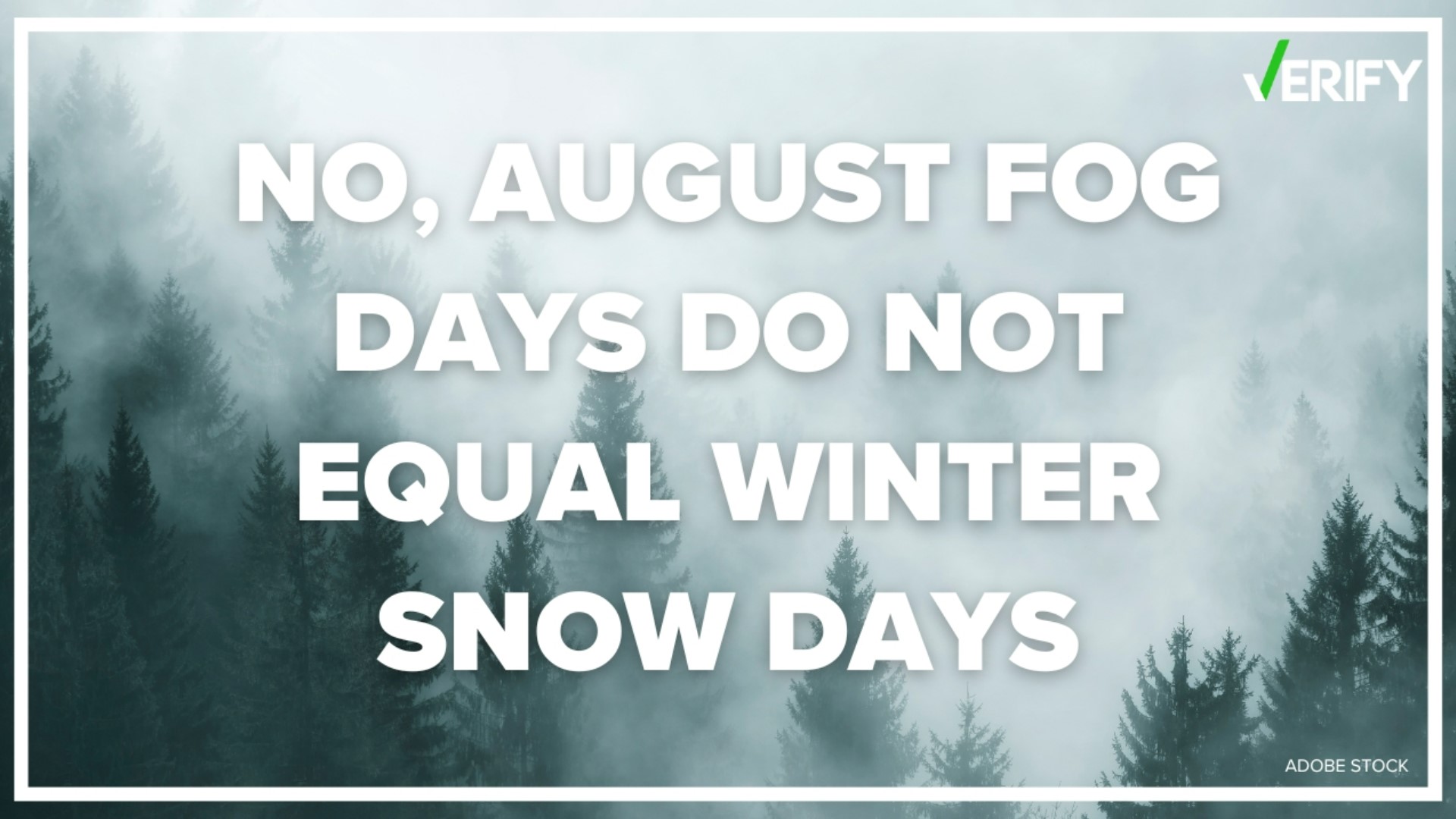CHARLOTTE, N.C. — In the mountains of North Carolina many people know the folklore that says "For every fog in August, there will be a snowfall." People usually keep track it with beans or even coins in the jar. Some variations have large beans for heavy fog which means heavy snow and small beans for light fog and light snow.
Either way, this folklore has been around for generations in many parts of the country including many parts of the Appalachians and in North Carolina.
THE QUESTION
Is there a correlation between fog in August and winter snowfall?
THE SOURCES
THE ANSWER
No, August fog days do not equal winter snow days.
WHAT WE FOUND
While many weather folklores have some small grains of truth to them or valid ties to nature and weather most do not. The only true way to know is to look at the data, which I did.
For this, we use the official weather observations from Boone, North Carolina, which are taken at the hospital in Watauga County. This automated observation system takes measurements every minute, every hour, every day all year long.
First the Fog:
I looked at the average number of days per August that fog was reported at some point in the day for Boone. The average number of fog days was 6.2 days per August. Also ironically Spetemebr actually has more days of fog and combined with August makes up the most fog days per year.


Next, I looked at the same location for the number of snowfalls of any kind for any hour during the winter season. This came out to 29.6 days where it snowed between October to April. If I reduce that to just meteorological winter from December to February you still get 27.8 average snow days per winter. All of which is way more than the average of 6.2 fog days in August.


What about measurable snowfall only?
So what if we just look at days where it snows actually stuck? Which is defined as measurable snowfall of 0.10" or more. This number is much closer but still much higher than the average for days. Year to year totals vary but the 30-year average varied from 17-13 measurable snow days per year.


While keeping track of August fog days is fun and really takes your mind off of the crazy heat and humidity, there is no data or scientific correlation to the days with snowfall. Sure there are likely some years where the number are close, but that's more a mere coincidence and not a correlation.
With 22 years of data, the average should be at least statistically close for there to be a true correlation.
Contact Brad Panovich at bpanovich@wcnc.com or follow him on Facebook, Twitter and Instagram.
VERIFY is dedicated to helping the public distinguish between true and false information. The VERIFY team, with help from questions submitted by the audience, tracks the spread of stories or claims that need clarification or correction. Have something you want VERIFIED? Text us at 704-329-3600 or visit /verify.

